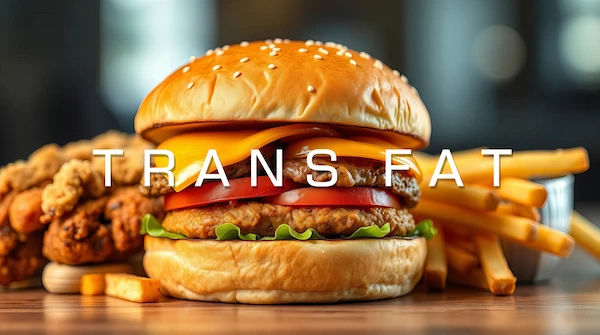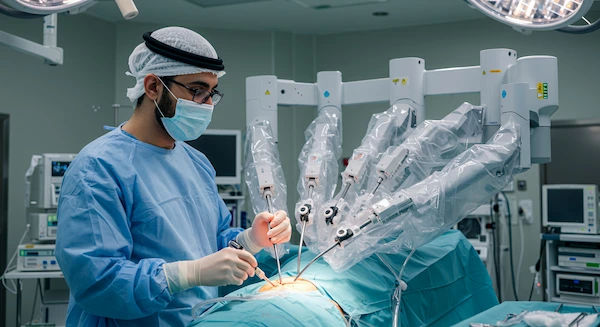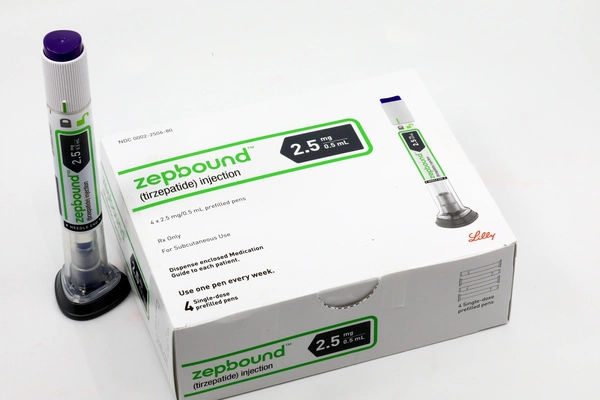10 Worst Foods for Belly Fat and Digestive Health
Discover the 10 most unhealthy foods that fuel belly fat and upset digestion. Learn smarter swaps to build a belly fat diet that supports gut health.

Written by Dr. Mohammed Kamran
Reviewed by Dr. Rohinipriyanka Pondugula MBBS
Last updated on 13th Jan, 2026

Introduction
Not all calories affect your body in the same way. Some unhealthy foods make it easier to gain belly fat, especially the deep visceral fat that surrounds your organs and increases the risk of heart disease, type 2 diabetes, and liver problems. Many of these foods also irritate your digestive system, leading to reflux, bloating, or discomfort. If you’re building a belly fat diet that actually works, knowing what to limit is half the battle. Below are the ten worst offenders - and what to eat instead - based on guidance from reputable health organisations.
The 10 Worst Foods for a Belly Fat Diet and Digestive Health
Here are some of the worst foods for belly fat:
1) Sugar-Sweetened Beverages
Let's see why sugar sweetened beverages are the worst for belly fat:
Why they’re a problem:
- Liquid sugar is absorbed quickly and doesn’t make you feel full, which makes overeating more likely. These drinks are strongly linked with weight gain and more body fat over time.
- Carbonation, caffeine, and acidity can aggravate reflux and bloating in some people.
Better swaps:
- Water (plain or sparkling), unsweetened tea, or coffee with minimal added sugar.
- Infuse water with lemon, mint, or berries.
If you enjoy sweetness, try a splash of 100% fruit juice in sparkling water instead of a full glass.
2) Alcohol and Sugary Cocktails
Let's see why alcohols are the worst for belly fat:
Why they’re a problem:
- Alcohol adds “empty” calories and can loosen food restraint, making larger portions and late-night snacking more likely. Heavier drinking is associated with more abdominal fat.
- Alcohol can irritate the oesophagus and stomach, worsening acid reflux and digestion.
Better swaps:
- Limit to moderate intake (if you drink): up to one drink per day for most women, two for most men. Some people should not drink at all.
- Choose smaller pours, dilute cocktails with soda water, or select lower-sugar options.
- Build some alcohol-free days into your week.
3) Refined Grains and Pastries
Let's see why pastries are the worst to consume if you've belly fat:
Why they’re a problem:
- Refined grains are lower in fibre, digest quickly, and can lead to spikes in blood sugar and hunger soon after eating - making it easier to gain weight around the middle.
- Low-fibre choices can also slow digestion and contribute to constipation.
Better swaps:
- Wholegrain bread, oats, brown rice, quinoa, wholewheat pasta, and barley.
- For sweets, choose smaller portions and pair with fibre-rich foods such as berries or nuts.
4) Fried Foods and Fast-Food Combos
Let's see why fried foods are the worst to consume if you've belly fat:
Why they’re a problem:
- Fried foods are energy-dense and often combine refined carbs with unhealthy fats, driving calorie excess and weight gain over time.
- High-fat meals relax the lower oesophageal sphincter and slow stomach emptying, which can trigger heartburn and indigestion.
Better swaps:
- Grill, bake, roast, air-fry, or sauté with minimal oil.
- Choose grilled proteins, salads with olive oil–based dressings, and sides like fruit or vegetables instead of fries.
5) Processed Meats
Here's why processed meats are bag for belly fat:
Why they’re a problem:
- Typically high in calories, saturated fat, and sodium - factors tied to weight gain and poor metabolic health.
- Can aggravate reflux (high fat and salt) and are linked with higher long-term risk of colorectal disease.
Better swaps:
- Poultry, fish, beans, lentils, tofu, or minimally processed lean meats.
- Season with herbs, spices, citrus, and olive oil instead of cured meats for flavour.
6) Packaged Desserts and Sweets
Let's have a look at why dessert are not good for belly fat and some alternatives for it:
Why they’re a problem:
- High in added sugars and refined fats that can encourage fat storage when eaten in excess, especially if they displace fibre- and protein-rich foods.
- Very sweet or fatty treats can also worsen reflux in sensitive people.
Better swaps:
- Fruit with Greek yoghurt or a small piece of dark chocolate.
- Bake at home with less sugar, use wholegrain flours, and add nuts or seeds for fibre.
7) Chips and Salty Snacks
Let's have a look at why salty snacks are not good for belly fat and some alternatives for it:
Why they’re a problem:
- Easy to overeat and low in fibre and protein, so they don’t keep you full.
- High sodium can lead to water retention and bloating, making your waistline feel bigger even without fat gain.
Better swaps:
- Nuts and seeds (portion-controlled), air-popped popcorn, roasted chickpeas, or wholegrain crackers with hummus.
- Look for lower-sodium options and single-serve packs to help manage portions.
Consult Top Specialists
8) Foods with Trans Fats or Partially Hydrogenated Oils
Let's have a look at why trans fat foods are not good for belly fat and some alternatives for it:
Why they’re a problem:
- Industrial trans fats raise LDL (“bad”) cholesterol and harm heart health. In some research, they’re linked with abdominal fat gain.
- Many countries have removed partially hydrogenated oils from the food supply, but products may still be found in imported or older items. Always check labels.
Better swaps:
- Choose foods made with liquid oils (olive, rapeseed/canola) or those without “partially hydrogenated” oils on the label.
- Favour nuts, seeds, avocado, and olive oil for healthy fats.
9) Fruit Juice and Oversized Smoothies
Let's have a look at why fruit juices are not good for belly fat and some alternatives for it:
Why they’re a problem:
- Even 100% fruit juice concentrates the fruit’s sugars without the fibre, making it easy to drink excess calories with little fullness.
- Large, café-style smoothies can pack syrups, frozen yoghurt, and sweetened milks - adding up quickly.
Better swaps:
- Whole fruit instead of juice.
- DIY smoothies: use whole fruit, leafy greens, plain yoghurt or milk, and skip added sugars. Keep portions reasonable.
10) Sugar Alcohols and Certain “Diet” Sweets
Let's have a look at why sugar alcohols are not good for belly fat and some alternatives for it:
Why they’re a problem:
- While lower in calories, sugar alcohols can pull water into the gut and ferment in the colon, causing gas, bloating, and diarrhoea - especially in people with IBS or in large amounts.
- They don’t directly cause belly fat, but frequent gastrointestinal distress can make it harder to maintain a steady, healthy eating routine.
Better swaps:
- If using sugar substitutes, try small amounts and test tolerance.
- Choose naturally sweet foods like berries or a piece of fruit, and keep portions modest.
Build a Belly Fat Diet that Supports Digestion
Here’s how to build a belly fat diet that supports digestion:
- Prioritise fibre: Aim for plenty of vegetables, fruits, beans, lentils, and whole grains. Fibre helps you feel full and supports regularity and a healthier gut environment.
- Choose lean proteins: Fish, poultry, eggs, tofu, tempeh, beans, and Greek yoghurt help control hunger.
- Include healthy fats: Olive oil, nuts, seeds, and avocado promote satisfaction and heart health.
- Watch added sugars: Health organisations recommend limiting added sugars; sweetened drinks are the biggest source for many people.
- Hydrate: Water helps digestion, reduces constipation, and can curb appetite.
- Eat mindfully: Slow down, chew well, and stop when you’re comfortably satisfied.
- Move more: Regular activity helps reduce visceral fat and supports digestive motility.
- Sleep and stress: Poor sleep and high stress are linked with weight gain and digestive symptoms. Aim for consistent, high-quality sleep and use stress-reduction strategies.
Quick Grocery Checklist to Dodge Common Pitfalls
- Read labels: Avoid “partially hydrogenated oils” and keep added sugars low.
- Stock staple swaps: Wholegrain bread and pasta, brown rice, oats, beans, and frozen vegetables and fruit.
- Plan snacks: Nuts, yoghurt, fruit, cut vegetables with hummus, wholegrain crackers.
- Prep backup meals: Canned beans, tuna, or rotisserie chicken with salad and a whole grain make fast, balanced plates.
Consult Top Specialists
Consult Top Specialists

Ms. Suhita Sinha
Dietician
8 Years • BSC Food & Nutrition
Kolkata
Chikitsa Medicare Centre Pvt. Ltd.Sattelite Centre Behala Chowrasta, Kolkata

Dr. Hrishikesh Shivakumar
General Physician/ Internal Medicine Specialist
9 Years • MBBS, MD (GENERAL MEDICINE)
Bangalore
Apollo 24|7 Clinic - Karnataka, Bangalore
(75+ Patients)

Dr. Haritha C Peddi
Diabetologist
6 Years • MBBS, MD internal Medicine, Diabetology & Metabolic disorders, Critical care
Bengaluru
Apollo Sugar Clinic, Hebbal, Bengaluru

Dr. Lakshmi Sanjitha Kakani
General Physician/ Internal Medicine Specialist
6 Years • MBBS, MD (General Medicine)
Visakhapatnam
Apollo 24|7 Clinic - Andhra Pradesh, Visakhapatnam

Dr. Praveen Kumar Mukka
General Physician/ Internal Medicine Specialist
21 Years • MBBS, MD General Medicine
Hyderabad
Apollo 24|7 Clinic - Telangana, Hyderabad
(125+ Patients)
Consult Top Specialists

Ms. Suhita Sinha
Dietician
8 Years • BSC Food & Nutrition
Kolkata
Chikitsa Medicare Centre Pvt. Ltd.Sattelite Centre Behala Chowrasta, Kolkata

Dr. Hrishikesh Shivakumar
General Physician/ Internal Medicine Specialist
9 Years • MBBS, MD (GENERAL MEDICINE)
Bangalore
Apollo 24|7 Clinic - Karnataka, Bangalore
(75+ Patients)

Dr. Haritha C Peddi
Diabetologist
6 Years • MBBS, MD internal Medicine, Diabetology & Metabolic disorders, Critical care
Bengaluru
Apollo Sugar Clinic, Hebbal, Bengaluru

Dr. Lakshmi Sanjitha Kakani
General Physician/ Internal Medicine Specialist
6 Years • MBBS, MD (General Medicine)
Visakhapatnam
Apollo 24|7 Clinic - Andhra Pradesh, Visakhapatnam

Dr. Praveen Kumar Mukka
General Physician/ Internal Medicine Specialist
21 Years • MBBS, MD General Medicine
Hyderabad
Apollo 24|7 Clinic - Telangana, Hyderabad
(125+ Patients)
More articles from General Medical Consultation
Frequently Asked Questions
Can I target belly fat with specific foods?
You can’t spot-reduce fat from one area, but eating fewer ultra-processed, sugary foods and more fibre-rich whole foods helps reduce overall and visceral fat over time, especially when combined with physical activity and adequate sleep.
Are all carbs bad for belly fat?
No. Whole-food carbs with fibre—like oats, beans, fruit, and whole grains—are linked with better weight control and digestive health. It’s refined grains and added sugars that are most problematic.
Is fruit okay if I’m trying to reduce belly fat?
Yes. Whole fruit has fibre, water, and nutrients that support fullness and gut health. Keep juice limited and focus on whole fruit instead.
Which drinks are best for digestion and weight?
Water, unsweetened tea, and plain coffee in moderation work well. Limit alcohol and sugary beverages. If you have reflux, avoid large, late-night drinks and test your tolerance to carbonation and caffeine.
Do I need to avoid spicy foods?
Not unless they bother you. Spicy foods are not inherently unhealthy. If you have reflux or IBS and find that spicy meals trigger symptoms, reduce portion size or choose milder options.




